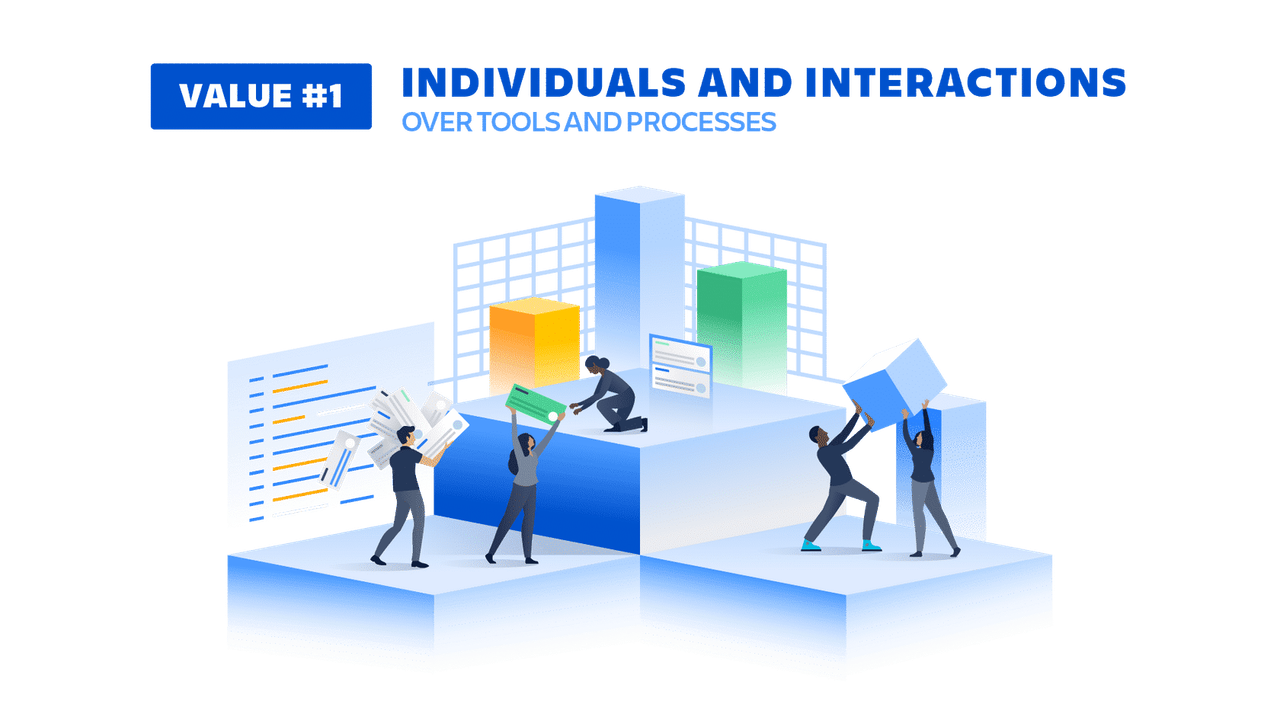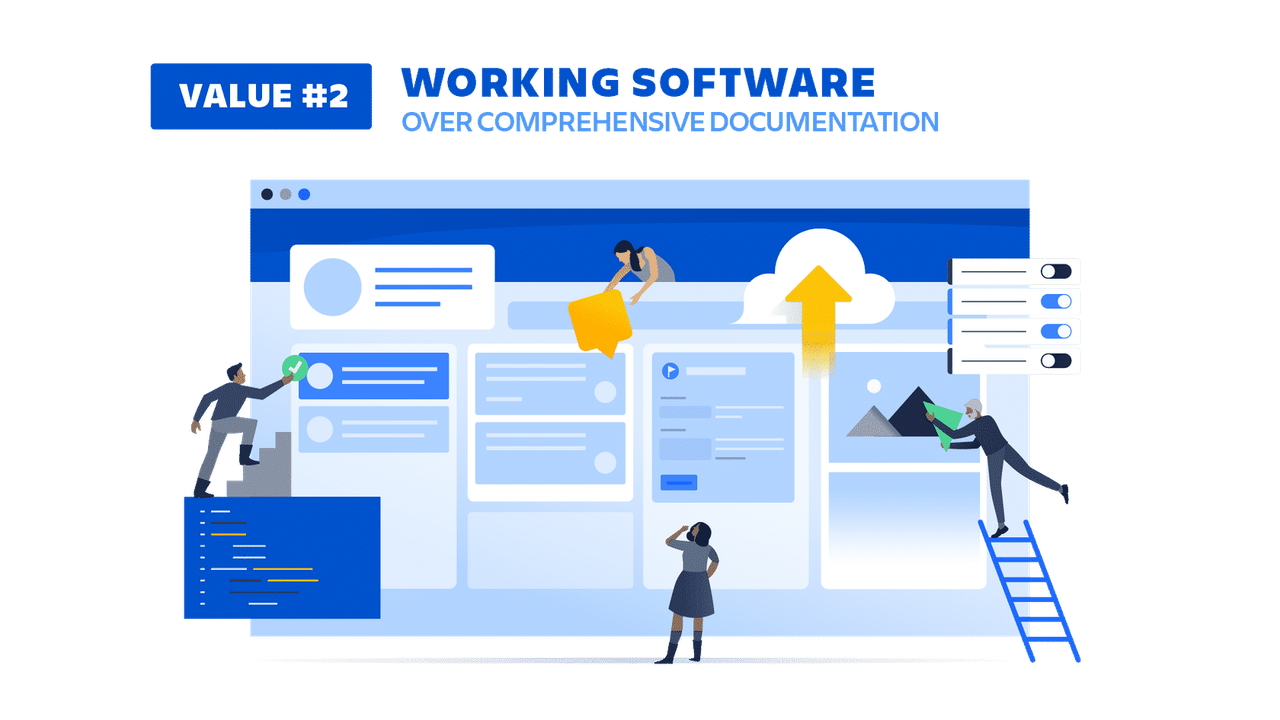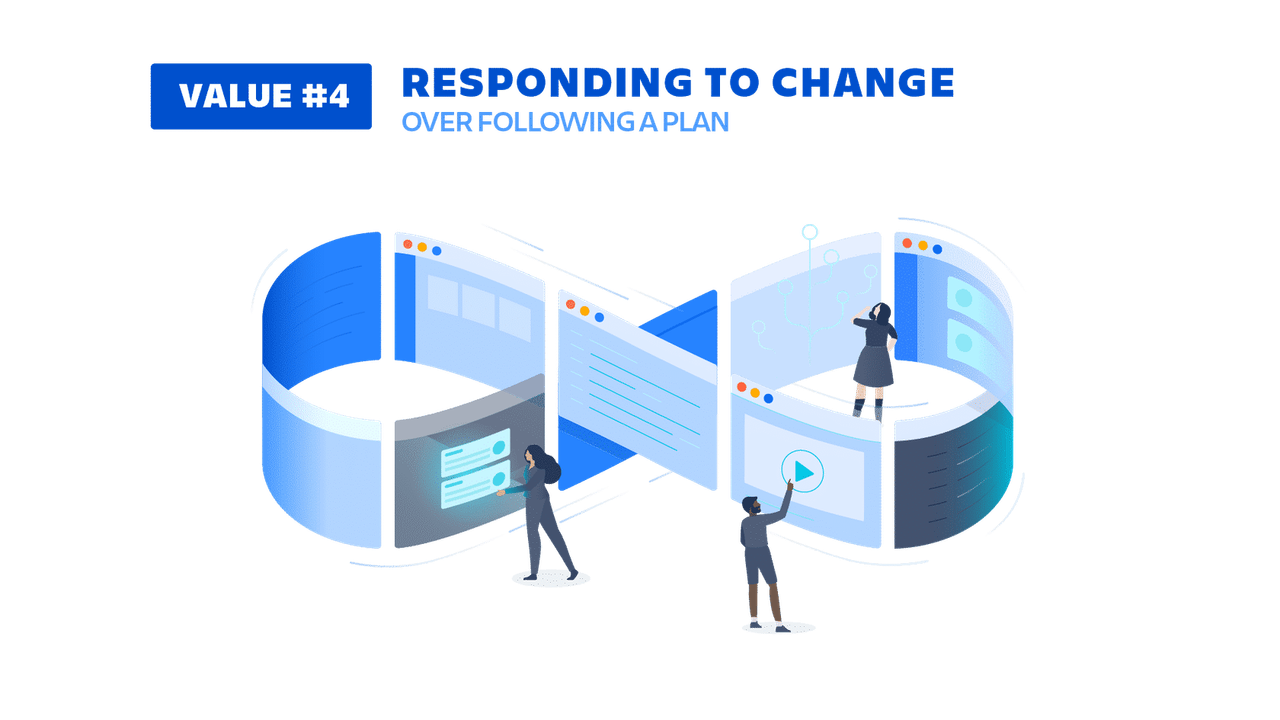Understanding the four values of agile
Why are the values so important?
The four values are the foundation of agile.
- They are simple and direct guidelines that can help you navigate complex projects and deliver more value to stakeholders.
- Once you understand the four values, everything else you learn about agile will be easier to grasp.
- Knowing the values will make it easier to:
- Approach your work with an agile mindset
- Understand agile frameworks like kanban and scrum
- Start using agile tools like Jira Software
👇 Let's take a closer look at the four values.

- Successful teams prioritize finding the right people and making sure they communicate frequently.
-
Good tools and processes help, but focusing on the individuals and their interactions will yield the best results.
For Example: the world's best guitar is useless to someone that doesn't know how to play it. Making a beautiful song (or product) requires highly skilled people that can collaborate effectively. 3. Your team should do the same: prioritize people and communicate often. Frequent discussions across the team help uncover critical information to keep the work moving forward.

- Successful teams prioritize delivering a product that works, not to make it perfect. This value applies to any work you deliver to customers, not just software.
- Before agile, teams would try to build against the full scope of project requirements, allowing very little flexibility.
- Instead, your team should look for a few critical features to deliver as a minimum viable product (or MVP). Then, the team should prioritize building the MVP and get it in the customers' hands as quickly as possible.
- This practice gives customers a working product, and it allows your team to get real-time feedback to improve future iterations.

- Successful teams prioritize frequent collaboration with stakeholders and customers. Think of your customers as partners, working closely to design the best solution
- Before agile, teams would spend a lot of time detailing a final product before the work started. The problem was that these original details rarely ended up providing much value in the end.
- Instead, you should partner closely with your customer throughout the process and be ready to adapt to changing needs and requirements. Gather feedback frequently to help your customers quickly solve their highest priority problems.

- Successful teams stay flexible and ready to adapt to unforeseen changes. Starting with a plan is always a good idea, but don't be overly rigid in sticking to it.
- It's important to recognize in work (and life) that change is the only constant. Markets, teams, projects, and situations are constantly in flux.
- You and your team will be most successful if you prepare your mind for constant changes and are ready to make intelligent pivots on a whim.